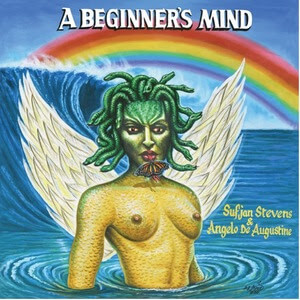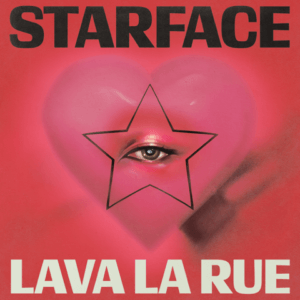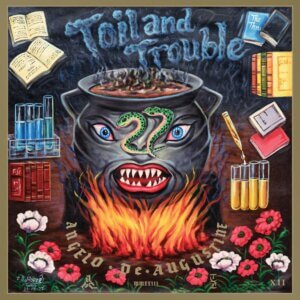
7.6
A Beginner's Mind
Sufjan Stevens & Angelo De Augustine
There’s a very good chance many people’s exposure to Sufjan Stevens was through a movie, whether through the explosion of horns on “Chicago” scoring the adventures of a long-suffering family and their long-suffering VW bus in Little Miss Sunshine or “The Mystery of Love,” Stevens’ Oscar-nominated song for Call Me By Your Name. Or maybe after seeing “I, Tonya,” they were intrigued by this song named for Miss Harding. Though his lyrics are more concerned with matters like faith and existence than they are about flexing movie knowledge, Stevens as a cinephile is consistent with what he’s shown us.
Throughout his career, he’s explored genres and modes of storytelling while retaining his identity, much like an auteur director. Some of Stevens’ core strengths (multi-faceted characters, vivid imagery) are qualities envied by filmmakers and songwriters alike. Give him the right budget, and he could make a feature-length movie worth watching.
Movies are the theme of “A Beginner’s Mind,” Stevens’ new album with Angelo De Augustine, another member of his Asthmatic Kitty label. That this is a collaboration is a bit of an afterthought, as Augustine and his delicate vocals – reminiscent of Mike Hadreas on early Perfume Genius albums – folds so smoothly into Stevens’ own vocals that you may occasionally forget it’s a two-person creation. But it was borne of Stevens and Augustine holing up in a friend’s upstate New York cabin for a month, watching movies and writing songs.
Sourcing inspiration from films recognized as Art (All About Eve, Silence of the Lambs) and those that…aren’t (Hellraiser III, Bring It On Again), A Beginner’s Mind might seem like it should be a particularly loose album from Stevens. There’s also the description-defying artwork, created by Ghanaian artist Daniel Anum Jasper, who would design his own posters for Hollywood movies screened in Ghana in the back of pick-up trucks. But the album is generally quite reserved, practically feeling like a comedown for those who might’ve been a bit overwhelmed by more epic recent Stevens albums The Ascension and Convocations. Lyrically, it feels more like an album with some stray movie references than one specifically inspired by them. Though when you hear one chorus that references She’s Gotta Have It and another that name-drops Jonathan Demme, it starts to click a little more.
And that’s not an issue, as Stevens and De Augustine are speaking from the perspective of musicians, not film scholars. The incredible chorus of Back to Oz is enough to excuse the triteness of another musical journey to the Emerald City, as is the “No place like home” chorus on Olympus. The ethereal production mixed with blood-strewn imagery places “The Pillar of Souls” among Stevens’ most haunting compositions. “Cimmerian Shade” finds him channeling similar cautious empathy for fictional Silence of the Lambs’ killer as he did John Wayne Gacy. His and De Augustine’s vocals are so effectively rendered on “You Give Death A Bad Name,” they sound like two ghosts who don’t realize they’re both dead.
But to continue the movie metaphor, A Beginner’s Mind’s only issue is similar to one with say, many middlebrow Oscar contenders, where no scene/song is less than decent, and some are really good, but none are exceptional, at least not in the way that makes it a standout of the medium, or even the creator’s catalog. This is a collection of 14 good chamber-folk songs, which could soundtrack movies of their own. On some quiet nights, that’s more than enough. And when you’re looking for the Sufjan Stevens listening experiences that recalibrate your mind like it’s new again, well there’s never a bad time to pull out The Age of Adz.
Pre-order A Beginner’s Mind by Sufjan Stevens & Angelo De Augustine HERE
Latest Reviews
Tracks
Related Albums
Related News
Advertisement
Looking for something new to listen to?
Sign up to our all-new newsletter for top-notch reviews, news, videos and playlists.













